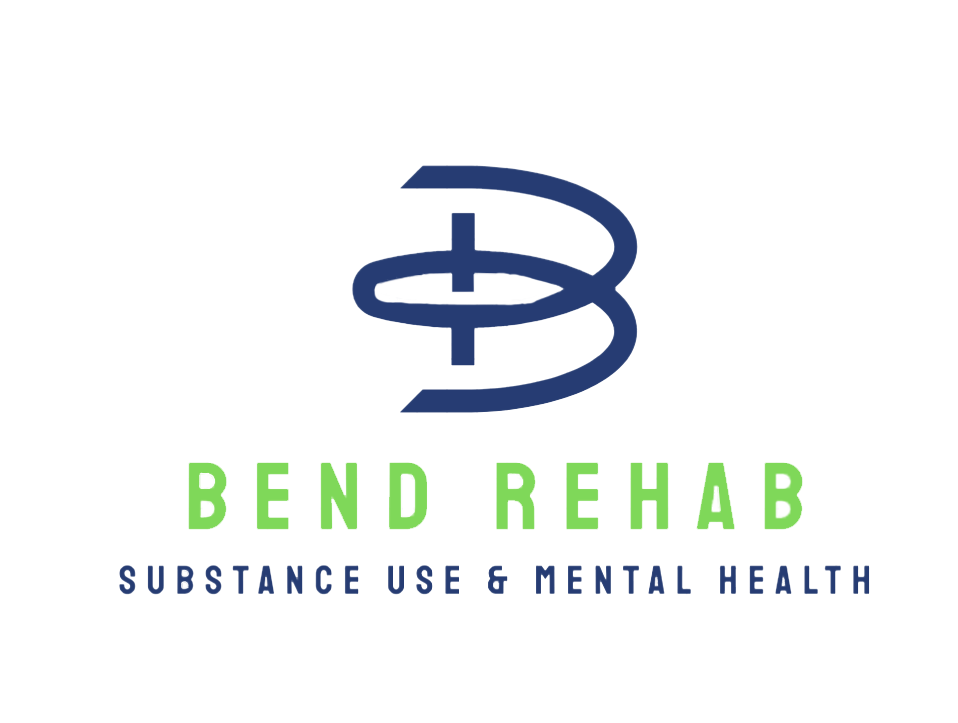Drug Rehab Bend OR: A Path to Lasting Recovery
When someone is battling substance use, finding a pathway toward lasting healing is crucial. For individuals and families in Central Oregon, the search often leads to drug rehab Bend OR—a growing hub for compassionate, evidence-based addiction recovery. Bend offers not only professional treatment but also the serenity of nature, promoting healing in mind, body, and spirit. Whether you’re just starting your recovery journey or supporting a loved one, knowing what to expect from a rehab center in Bend can ease the fear of the unknown. This guide explores the services, therapies, and philosophies that define drug rehab programs in this vibrant region.
The Role of Addiction Intervention
An addiction intervention is often the first step in getting someone the help they need. Whether an individual struggles with alcohol, opioids, meth, or fentanyl, denial is a common barrier to treatment. In drug rehab Bend OR facilities, intervention services are guided by licensed professionals who provide structured support to families and loved ones. These interventions aim to open a window of clarity and compassion, allowing the addicted person to see the damage caused and accept help. Done correctly, an intervention can be life-saving. Key features of addiction intervention services:
• Organized planning sessions involving families and clinicians to collaboratively develop personalized care strategies and address specific needs
• Experienced professional interventionists guiding and supporting the entire process to ensure a constructive and effective outcome
• Personalized communication strategies tailored to meet the unique needs and preferences of your audience, ensuring more meaningful and effective interactions
• Emphasis on providing nonjudgmental support to create a safe and understanding environment where individuals feel heard and valued
• Seamless transition into a rehabilitation program upon acceptance, ensuring continuous support and care
Detox Programs: Clearing the First Hurdle
Detox is the necessary process of removing substances from the body and managing withdrawal symptoms. Without medical supervision, detox from drugs like heroin, benzodiazepines, or cocaine can be dangerous and even deadly. That’s why most drug rehab Bend OR centers offer medically supervised detox programs that prioritize comfort and safety. While detox is not a cure for addiction, it is an essential first phase before deeper therapeutic work begins. The goal is stabilization, both physically and emotionally. Benefits of medically supervised detox include:
• 24/7 medical monitoring to ensure round-the-clock care and immediate response to any health concerns
• The use of medication to help manage withdrawal symptoms can ease discomfort and support individuals as they navigate the challenges of stopping substance use
• Emotional support provided by compassionate, trained staff who are dedicated to helping individuals navigate challenges and feel understood
• Immediate access to further levels of care, ensuring timely support and treatment when you need it most
• A safer alternative to attempting detox at home, providing professional support and monitoring to ensure a smoother, more effective recovery process.
Inpatient and Outpatient Programs: Personalized Care Levels
Addiction affects people differently, so drug rehab Bend OR centers often offer a continuum of care that includes both inpatient and outpatient programs. Inpatient programs provide structured, round-the-clock care and are ideal for individuals with severe addictions or co-occurring disorders. Outpatient programs allow for more flexibility, enabling clients to continue with work, school, or family obligations while receiving care. Both are grounded in therapy, skill-building, and relapse prevention. Differences and benefits of each program:
• Inpatient treatment: Provides 24/7 care in a structured residential setting, offering round-the-clock support, comfortable living arrangements, and access to intensive therapy tailored to the individual’s needs
• Outpatient treatment: Includes scheduled therapy sessions, allowing individuals to maintain their daily routines and continue living at home. It is a more flexible and cost-effective option compared to inpatient care, making it ideal for those with milder conditions or strong support systems
• Smooth and flexible transitions between different levels of care, ensuring that individuals receive the appropriate support as their needs change
• Ideal for clients with varying levels of addiction severity, ranging from mild to severe, ensuring personalized care and support tailored to their unique needs
We offer both group and individual therapy sessions, tailored to meet your needs, in a variety of settings to provide the most effective and supportive environment for your growth and healing
PHP: A Stepping Stone in Structured Recovery
Partial Hospitalization Programs (PHPs) serve as an intermediate level of care between inpatient treatment and outpatient services. In drug rehab Bend OR, PHPs are typically structured to provide up to 6 hours of therapy daily, five days a week. These programs help clients continue progressing in their recovery while living at home or in transitional housing. PHPs are especially beneficial for individuals who have completed detox or residential treatment but still need high-level support. Highlights of a Partial Hospitalization Program:
•Daily therapy sessions including group and individual counseling
•Medical monitoring and medication support
•Psychoeducation classes for addiction and mental health
•Opportunities for family involvement and education
•Strong focus on relapse prevention planning
Transitional Living: Stability During Vulnerable Times
After completing intensive inpatient or PHP care, many individuals are not yet ready to return to their former living environments. Transitional living options in drug rehab Bend OR offer safe, structured environments where individuals can continue building recovery skills. These sober living homes or recovery residences bridge the gap between treatment and independence. They provide peer support, accountability, and continued connection to recovery resources. What to expect in transitional living:
•Drug-free housing with peer support
•House rules that encourage structure and accountability
•Mandatory curfews and house meetings
•Support for employment or schooling
•Continued access to therapy and case management
Cognitive Behavioral Therapy (CBT): Rewiring Thought Patterns
CBT is one of the most effective and widely used therapeutic approaches in drug rehab Bend OR facilities. It works by identifying and challenging negative thought patterns that contribute to substance use and replacing them with healthier ones. CBT empowers individuals to recognize the triggers that lead to substance use and develop effective coping strategies. This therapy is evidence-based and applicable across various types of addiction, from alcohol to methamphetamine. Benefits of CBT in drug rehab:
•Enhances emotional regulation
•Reduces cravings and impulsive behavior
•Teaches practical coping skills for real-life situations
•Improves self-awareness and accountability
•Highly adaptable to both group and individual therapy formats
Dialectical Behavior Therapy (DBT): Managing Emotions and Relationships
While CBT focuses on changing thought patterns, DBT emphasizes emotional regulation and interpersonal effectiveness. Originally developed for borderline personality disorder, DBT is now widely used in drug rehab Bend OR to help individuals manage intense emotions that often drive substance use. DBT combines mindfulness, acceptance, and behavioral strategies to create balance and stability. Core components of DBT include:
•Mindfulness techniques to stay grounded in the present
•Emotion regulation strategies to reduce vulnerability
•Distress tolerance tools for managing crisis moments
•Interpersonal effectiveness skills to improve relationships
•Weekly individual therapy and skills groups

EMDR: Healing Trauma That Fuels Addiction
Many people who struggle with substance use have unresolved trauma. Eye Movement Desensitization and Reprocessing (EMDR) is a powerful tool offered in several drug rehab Bend OR centers to address trauma-related triggers. EMDR helps the brain process painful memories in a way that reduces their emotional impact. It uses bilateral stimulation—often eye movements or tapping—while the client recalls distressing memories, allowing healing without being re-traumatized. Why EMDR is transformative in addiction recovery:
•Addresses trauma at the root of addiction
•Helps reduce symptoms of PTSD and anxiety
•Requires minimal verbal discussion of traumatic events
•Can accelerate emotional healing
•Often used alongside other therapies like CBT or DBT
Motivational Interviewing: Finding Internal Drive for Change
Motivational Interviewing (MI) is a client-centered counseling method that enhances motivation for change by helping clients resolve ambivalence. In many cases, individuals entering drug rehab Bend OR aren’t fully committed to quitting or don’t believe they can recover. MI meets clients where they are, without judgment, and helps them explore their own reasons for change. It’s a collaborative, empowering approach used throughout all stages of recovery. Benefits of Motivational Interviewing:
•Encourages autonomy and self-discovery
•Helps reduce resistance to treatment
•Builds client confidence and self-efficacy
•Promotes long-term engagement in recovery
•Ideal for individuals early in their recovery journey
Medication Management: Support for Co-occurring Needs
For many individuals in drug rehab Bend OR, medication is a necessary part of recovery—whether for withdrawal symptoms, mental health conditions, or cravings. Medication management services ensure that clients are safely prescribed and monitored by professionals. This can include antidepressants, anti-anxiety medications, or medications for substance use disorders like Suboxone or Naltrexone. Integrating medication with therapy improves both short-term stability and long-term outcomes. What medication management typically includes:
•Psychiatric evaluations and ongoing assessments
•Safe prescribing practices for addiction-related medications
•Close monitoring for side effects or misuse
•Integration with counseling and therapy plans
•Education for clients and families about medication use
Relapse Prevention: Building a Long-Term Plan
Completing a rehab program is just the beginning. Without a solid plan, the risk of relapse remains high, particularly during the early months of sobriety. That’s why relapse prevention is a core component of every reputable drug rehab Bend OR facility. Clients learn to identify triggers, manage stress, and create healthy daily routines. Most programs offer post-discharge support to ensure long-term success. Key aspects of relapse prevention:
•Development of personalized relapse prevention plans
•Skills training to cope with cravings and high-risk situations
•Ongoing group therapy and peer support
•Access to alumni programs and sober events
•Connection to community recovery resources (e.g., NA, AA)
A Holistic Approach in Bend, Oregon
What sets drug rehab Bend OR apart from programs in other regions is the natural emphasis on holistic healing. Surrounded by mountains, rivers, and trails, Bend offers a calming environment ideal for emotional and spiritual recovery. Many centers integrate alternative therapies such as yoga, mindfulness, nutritional counseling, and art therapy into their clinical programs. These holistic components enhance traditional treatments and support clients as they rebuild their lives. Common holistic therapies in Bend’s rehab centers:
•Nature-based therapy and outdoor activities
•Yoga and guided meditation sessions
•Nutritional coaching and meal planning
•Art therapy for self-expression
•Exercise and physical wellness programs
Substance Abuse in Focus: What Bend is Battling
The need for effective drug rehab Bend OR programs is evident in the region’s battle with substance abuse. Central Oregon faces challenges with alcohol, methamphetamine, fentanyl, heroin, and prescription opioids. Addiction impacts all age groups, from teenagers experimenting with vaping and pills to adults facing the aftermath of long-term substance use. Recovery is possible—but it starts with awareness, access to treatment, and community involvement. Substances commonly treated in Bend rehab centers:
•Alcohol: High relapse rates and long-term health effects
•Fentanyl: Deadly synthetic opioid requiring urgent intervention
•Methamphetamine: Associated with severe mental health decline
•Cocaine: Often used in social settings but leads to dependency
•Prescription opioids: From painkillers to heroin in many cases
Family Involvement: Healing Together
Addiction is a family disease, and recovery must involve the whole support system. That’s why most drug rehab Bend OR centers offer family therapy and education as part of the recovery process. Families learn to communicate more effectively, set healthy boundaries, and support loved ones in a sustainable way. By healing together, the chances of long-term recovery increase for everyone involved. Family program highlights:
•Weekly or bi-weekly therapy sessions
•Education on addiction and relapse prevention
•Tools for conflict resolution and boundary setting
•Support groups for spouses, parents, and siblings
•Opportunities to rebuild trust and connection
Conclusion: Choosing the Right Drug Rehab in Bend OR
Recovery is not a straight line—it’s a path with many turns, challenges, and moments of transformation. Drug rehab Bend OR offers the resources, environment, and support needed to make lasting recovery a reality. From intervention and detox to outpatient care, evidence-based therapies, and relapse prevention, the comprehensive options available here reflect the growing need for accessible and compassionate treatment. If you or a loved one are struggling with addiction, know that help is available and recovery is possible. Contact us by calling 1 (541) 802-7214 or visiting our website. Whether you’re at the beginning or somewhere in the middle of the journey, the right treatment center in Bend can help you take the next step toward a life of freedom and fulfillment. Don’t wait—your future is worth it.




